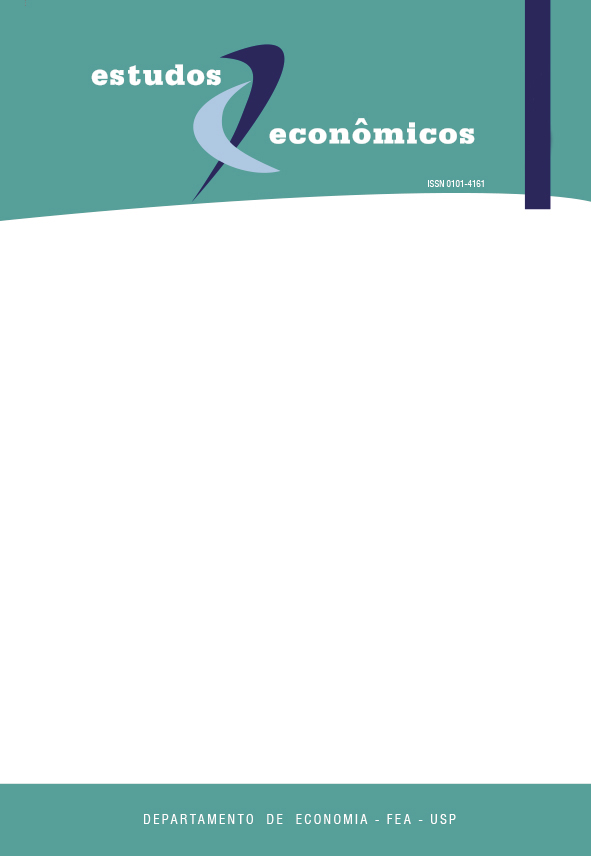A crise política do final da era Vargas: uma interpretação sob a ótica da economia política neo-institucionalista
DOI:
https://doi.org/10.1590/S0101-41612006000100008Palavras-chave:
Vargas, teoria da ação coletiva, nova economia institucional, dilemas de ação coletiva, BrasilResumo
Problemas de ação coletiva em geral não são passíveis de serem solucionados por negociações entre as partes envolvidas, requerendo a mobilização política de grupos de interesses. A economia neo-institucionalista tem recentemente incluído em suas análises uma abordagem de economia política para estudar essas situações, definidas como dilemas sociais. O presente trabalho objetiva mostrar como isso vem sendo feito no campo teórico, ilustrando a teoria com uma análise dos eventos dramáticos que culminaram com o suicídio de Getúlio Vargas, processo este que se considera insuficientemente explicado pelas interpretações tradicionais.Downloads
Referências
Axelrod, R. The complexity of cooperation – agent based models of competition and
collaboration. Princeton, New Jersey: Princeton University Press, 1997.
Bates, R. Social dilemmas and rational individuals: an assessment of the new institutionalism.
In: Harriss, J. et al., The new institutional economics and third world development. London: Routledge, 1995.
Coase, R. The nature of the firm. Economica, v. 4, n. 16, 1937. Reprinted in: Williamson,
O.; Winter, S. (eds.), The nature of the firm – origins, evolution, and development. New York: Oxford University Press, 1991.
Fausto, B. A revolução de 1930. História e historiografia. 4a edição. São Paulo: Brasiliense, 1976.
Fonseca, P. D. Sobre a intencionalidade da política industrializante no Brasil na década de 1930. Revista de Economia Política, v. 23, n. 1 (89), jan/mar 2003.
Hardin, R. Collective action. Baltimore: Johns Hopkins University Press, 1982.
Jaguaribe, H. Impasse na democracia brasileira, 1951-1955. (Coletânea de documentos:
prefácio). Rio de Janeiro: Editora de FGV, 1983.
North, D. Institutions, institutional change and economic performance. New York: Cambridge University Press, 1996. (First published 1990).
North, D. Economic performance through time. The American Economic Review, v.
, n. 3, June 1994.
North, D. Institutions. Journal of Economic Perspectives, v. 5, n. 1, Winter 1991.
Olson, M. The rise and decline of nations. New Haven: Yale University Press, 1982.
North, D. The logic of collective action: public goods and the theory of groups. Cambridge:
Harvard University Press, 1965. Republicado em 1999 A lógica da ação coletiva. São Paulo: Editora da USP.
Ostrom, E. Collective action and the evolution of social norms. Journal of Economic
Perspectives, v. 14, n. 3, Summer 2000.
Putnam, R. Making democracy work – civic traditions in modern Italy. Princeton: Princeton University Press, 1993.
Skidmore, T. Brasil: de Getúlio Vargas a Castelo Branco (1930-1964). São Paulo: Paz e Terra, 1992.
Vianna, S. B. Duas tentativas de estabilização. In: Abreu, M. P. (org.), A ordem do progresso. Rio e Janeiro: Campus, 1992.
Vianna, S. B. A política econômica no segundo Governo Vargas (1951-1954). Rio de Janeiro:
BNDES, 1987.
Williamson, O. The mechanisms of governance. New York: Oxford University Press,
Williamson, O. The economic institutions of capitalism. New York: Free Press, 1985.
Williamson, O. Transaction-cost economics: the governance of contractual relations. Journal
of Law and Economics, 22, October 1979.
Downloads
Publicado
Edição
Seção
Licença
Copyright (c) 2006 Newton Paulo Bueno

Este trabalho está licenciado sob uma licença Creative Commons Attribution-NonCommercial 4.0 International License.
A submissão de artigo autoriza sua publicação e implica o compromisso de que o mesmo material não esteja sendo submetido a outro periódico.
A revista não paga direitos autorais aos autores dos artigos publicados.





 Atualizado em 14/08/2025
Atualizado em 14/08/2025